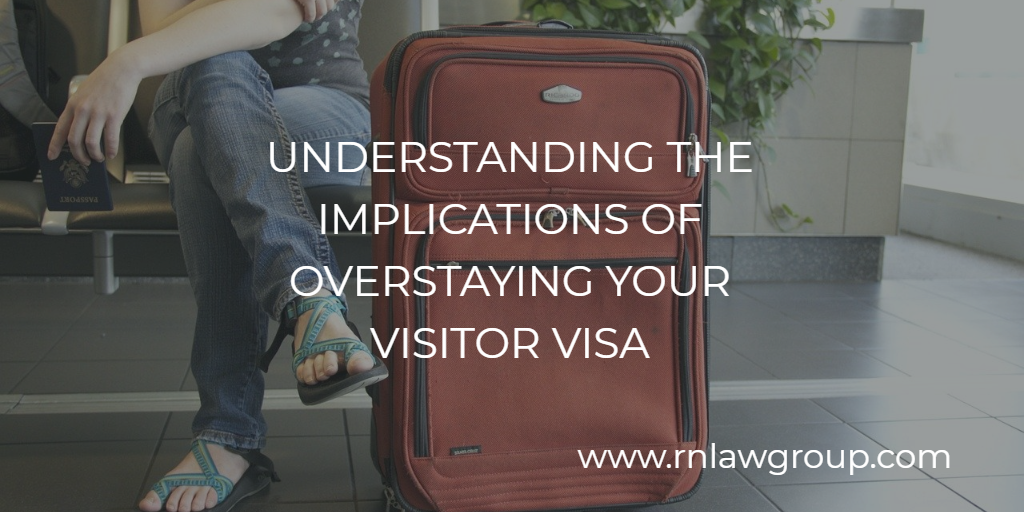
Overstaying a B-2 Visa Automatically Cancels the Visa.
Last March, the coronavirus pandemic began shutting down travel both domestically and internationally. As people became afraid to travel some individuals, like those visiting the United States on a B-2 visa, began risking overstaying their visa in order to avoid international travel and potential exposure to Covid-19. Others may have simply overstayed due to a general misunderstanding regarding the validity period of the B-2 visa. This article explains the difference between the period of time granted on a visa and the validity period in which one can remain in the U.S. while on B-2.
A B-2 visa’s purpose is for people traveling to the U.S. for tourism or social visits to family members or friends. The B-2 visa is generally valid for a period of ten years. As a multi-entry visa it allows an individual to re-enter the United States as long as their passport is valid. Once the B-2 visa holder has entered the United States the B-2 visa permits a maximum validity period of six months. This means the visa user, upon entry, will typically be provided with an I-94 that lists the expiration date of their validity period. It is this date, and not the date on the visa itself, which dictates how long one can remain in the U.S. before they need to depart or file an extension.
If an individual overstays their validity period as provided by either CBP or USCIS their visa will automatically be voided or cancelled, unless they have filed an application in a timely manner (prior to their validity period expiration date) for an extension or change of status and said application is pending and not frivolous. For example, if someone enters the United States on a B-2 visa they are typically provided a six month validity period noted via an I-94. Failure to either timely depart the United States or file for an extension will result in the individual overstaying their stay. Since overstaying gets their visa cancelled automatically they should not try to enter USA again with the same B-2 visa – this may lead to expedited removal proceedings. Recently, we have seen many people who tried to use their visas after previously overstaying getting removed (deported) when they try to enter the USA.
Remaining in the United States without status is a violation of U.S. immigration laws and can cause one to become ineligible for a visa in the future when attempting to return to the United States. If one overstays their visa between 180 and 365 days they risk being barred from the country for up to three years if they attempt to return. As mentioned above, you visa will usually be cancelled as a result of any overstay so that it cannot be utilized in the future.
Recently, CBP has been interviewing people departing the United States and cancelling their visas if they have overstayed their B-2 validity period. For example, if you were someone who entered the United States on a B-2 visa and failed to timely file a B-2 extension it is very possible your B-2 visa will be cancelled. Obtaining a new visa in the future will require applying for one in one’s country of nationality. Additionally, remaining in the United States for a significant time after the expiration of one’s validity period can also lead to inadmissibility issues as well as an inability to Adjust Status in the U.S. even if otherwise eligible. There have even been reports of people overstaying on B-2 visas and being detained when attempting to re-enter the United States. These individuals are placed in deportation proceedings which can result in temporary incarceration before being sent back to one’s home country.
The individuals who are overstaying their B-2 visas have likely been doing so due to confusion regarding their validity period or fear of travel due to the pandemic. However, remaining in the U.S. for even a day after the expiration of your B-2 can have serious negative consequences in future immigration endeavors. If you are currently out of status as a result of overstaying your B-2 visa it is strongly recommended to contact an immigration attorney. The attorney should be able to assess your unique situation and advise the best course of action moving forward.
By: Rahul Reddy and Justin Rivera


Rahul is the founding partner of Reddy Neumann Brown PC His practice covers employment-based immigration, in which he represents corporate clients in far-ranging industries.
Justin is an associate attorney at Reddy and Neumann. He practices immigration law with an emphasis on H-1B visas.
